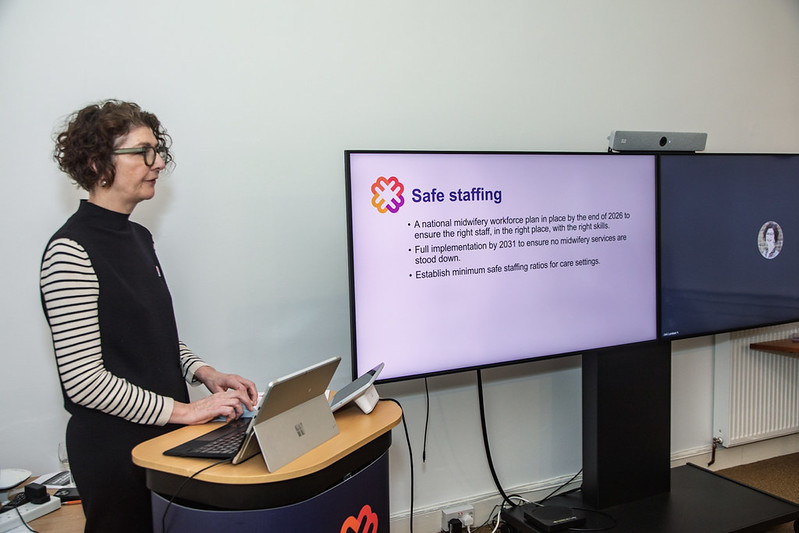Using guidelines and evidence to support women to make fully informed choices
The RCM’s Quality and Standards Advisor Rachel Drain discusses changes to NICE guidance and how using evidence to support women to make fully informed choices that are right for them is integral to the role of a midwife.
Supporting women to make informed choices about their care and, in particular, about labour and birth, is absolutely central to what we do as midwives. It’s not for us to impose our views, but to listen to the women in our care and help them make the choices and decisions that are right for them. At the heart of this is sharing appropriate evidence, which is why the recent update by NICE, the National Institute for Health and Care Excellence, to the guidance for caesarean birth is timely.
The update, which focuses on the benefits and risks of vaginal and caesarean birth, comes after further interrogation of the data used to compare the risks of vaginal birth, either assisted or unassisted, and caesarean section of any classification. While the updates to the NICE guidance for caesarean birth could be considered minor, the decision about how they will impact on the choices that women make around birth bear significance and are for each woman to decide.
The updates highlight two important points. Firstly, using research evidence to inform our practice is of paramount importance. As midwives we understand that high-quality research leads to the safest possible care for women and their families. It’s also useful when discussing choices with women and enables us to point to the risks and benefits based on the most up-to-date research and recommendations. For midwives seeking to deepen their understanding of, and confidence in, using, reading or interpreting research there are three iLearn modules available for RCM members here. These focus on discussing research, exploring a career in research and embedding clinical research into practice.
Secondly, supporting women to make fully informed choices is integral to a midwife’s role. The giving of unbiased information and assisting women to interpret and understand how this information relates to them in their specific situation is a pathway to truly personalised care. As midwives we seek to develop a trusting relationship with all who enter our care and there is little else as satisfying as knowing that we have supported a woman to make specific choices around their birthing experience.
The RCM is a registered stakeholders for all NICE consultations that are related to maternity care, which we are proud to be involved in. We believe women should be informed about relative risks between different modes of birth and this update provides more detail around the risks of urinary incontinence more than a year after birth being compared between assisted and unassisted vaginal birth with caesarean section. The data around childhood obesity is conflicting and this update classifies this as such. Aside from these minor updates the details around the risks of each mode of birth remain unchanged. NICE have developed helpful tools to help you put the guidance into practice which are available here.


